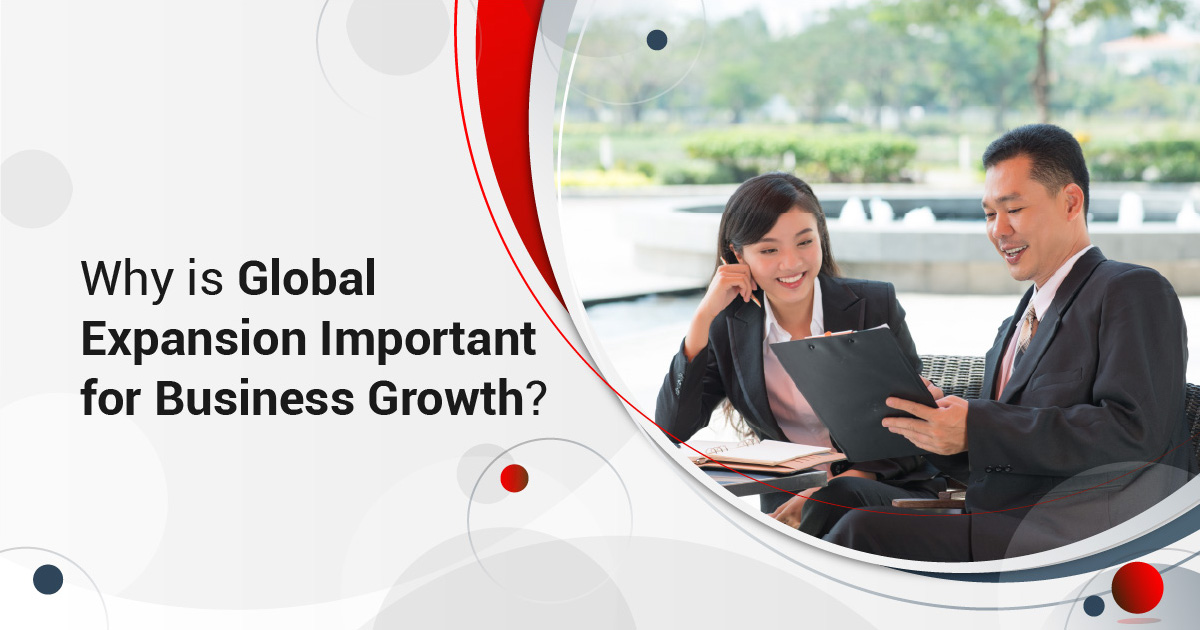The most successful businesses of the next decade will not be the ones that simply perfect their domestic operation. Rather, they will be the ones that master global growth before their competitors do. This is not speculation or simply our opinion; it is statistical reality backed by compelling research data.
Companies that establish a global presence are 22% more likely to achieve above-market growth rates than their domestically-focused counterparts. World economy aside, the ASEAN bloc alone represents a combined GDP of US$3.8 trillion in 2023 – an economic dark horse that rivals the world’s largest individual economies.
In our experience, however, expansion done poorly destroys value faster than staying local ever could. The difference between companies that thrive across borders and those that stumble lies in one factor: choosing the right strategic base for regional operations.
This article examines why geographic expansion has become a business imperative, how companies can build resilience through market diversification, and what data reveals about scaling operations effectively across multiple territories. We will explore how forward-thinking businesses select and leverage strategic regional bases to access growth opportunities while managing risk.
Throughout this research, we will use Singapore throughout as our primary case study since it performs well across key metrics, but the evaluation framework applies to any potential hub location.

Related Read: Opportunities in the Asia-Pacific: How Can Business Expansion Boost Growth?
The Business Case for Geographic Diversification
Market Spread Reduces Risk
Companies that operate in just one country face a potentially dangerous gamble. When that single market hits turbulence, whether from economic downturns, new regulations, or fierce competition, the entire business will likely suffer. Forward-thinking businesses, when able, spread their operations across different regions, creating a safety net that keeps revenue flowing when individual markets struggle.
In many ways, the concept is very similar to portfolio theory, but applied to business operations. Just as investors diversify their holdings, successful companies diversify their geographic exposure to smooth out the inevitable ups and downs of individual economies.
Local Presence Commands Premium Pricing
Beyond risk mitigation, expansion to new markets opens doors to higher profits. Research shows that 66% of B2B buyers willingly pay more for a localised customer experience. This premium exists because local presence signals genuine understanding of regional needs, cultural preferences, and business practices.
Remote service simply cannot replicate the trust and credibility that comes from having actual people on the ground who understand local market dynamics. It is for this reason that InCorp has local, on-the-ground offices in each of the markets we operate in.
Talent Pool Expansion Drives Innovation

Geographic expansion also naturally transforms your hiring capabilities. While remote work has broken down some barriers, strategic regional offices offer access to talent that domestic companies cannot reach. You gain technical specialists from emerging tech hubs, cultural experts who truly understand regional consumer behaviour, and multilingual professionals who can serve a wider range of customer bases.
Different markets also force innovation. New infrastructure challenges, unique customer expectations, and different technological environments push companies to develop better products and services. These improvements often prove valuable far beyond their original markets.
Scale Economics Improve Profit Margins
Finally, spreading fixed costs across multiple markets generally drives down per-unit expenses while boosting operational efficiency. For example, bulk purchasing becomes more powerful, distribution networks optimise across larger geographies, and technology investments generate returns across broader operational bases. This creates a reinforcing cycle where improved profitability funds further expansion and innovation.
Evaluating Potential Regional Hubs: A Framework for Success
Your regional headquarters choice shapes everything that follows. Some locations provide genuine stability, while others hide risks beneath glossy marketing. We recommend evaluating potential bases using measurable data rather than assumptions or regional reputation.
To demonstrate how this evaluation works in practice, we will examine Singapore’s performance across key metrics. Singapore serves as an excellent case study because it ranks well across multiple criteria, but you should apply this same analytical framework when assessing any potential hub location.
Government Stability Creates Predictable Operations
Political stability ranks among the most critical factors for multi-year investments. Businesses require confidence that rules will not change arbitrarily and that government competence will maintain regulatory consistency.
Singapore’s performance illustrates what strong political stability looks like: Singapore ranks 1st globally in the Bertelsmann Transformation Index for political and operational stability. This ranking demonstrates the type of predictable environment that regional operations require.
Legal framework strength also deserves equal attention when evaluating potential hubs. While global rule of law eroded, Singapore was one of the few nations to have its World Justice Project Rule of Law Index score improve, with strong scores for regulatory enforcement and corruption absence. Contract enforcement, intellectual property protection, and dispute resolution metrics like these affect daily operations across entire regions.
Digital and Physical Infrastructure Performance
Modern businesses depend on reliable connectivity, making infrastructure quality a key evaluation benchmark. Singapore leads globally in digital competitiveness according to IMD’s 2024 rankings. This type of technological infrastructure performance indicates whether a location can support regional operations without compromising speed or security.
Of course, physical connectivity matters equally for operational efficiency. Changi Airport’s recognition as the World’s Best Airport for the 13th time reflects the kind of reliability and connectivity that keeps regional businesses moving smoothly.
Intellectual Property Security
Innovation-driven companies should also prioritise locations with strong IP protection when selecting regional hubs. Singapore ranks 2nd globally and 1st in Asia for intellectual property rights protection. Legal certainty of this calibre encourages companies to base high-value R&D activities regionally rather than concentrating everything at headquarters.
Assessing Market Opportunities: The Asia-Pacific Example
When evaluating regional expansion targets, examine economic fundamentals, consumer trends, and investment flows to gauge genuine growth potential. We will analyse Asia-Pacific markets to demonstrate this assessment approach, but apply the same analytical framework when researching any expansion target.
Consumer Market Transformation
Asia-Pacific exemplifies dynamic economic transformation that creates expansion opportunities. The region houses 60% of the world’s population, but population size represents only part of the opportunity. Our research shows that it is the middle class expansion that creates the real consumer purchasing power.
The number of middle-class individuals in the 6 largest ASEAN economies will surge from 91 million in 2010 to 334 million by 2030. By 2030, middle-class consumers will represent over half the population, creating massive demand for electronics, automobiles, education and healthcare services.
Consumer behaviour analysis also shows a somewhat surprisingly sophisticated, digitally-native consumer base. Nearly 76% of the ASEAN population holds internet subscriptions, while over 56% of Southeast Asians now prefer shopping online. Research shows 77% actively participate in major sales events, while 71% deliberately delay purchases for promotional discounts showing savvy consumer behaviour patterns that indicate market sophistication.
Digital Economy Growth Metrics

Rapid digital economy expansion indicates strong growth potential for tech-enabled businesses. Southeast Asia’s digital economy reached $263 billion in 2024 with projections suggesting growth to US$600 billion by 2030.
E-commerce metrics particularly indicate robust growth trajectories, with the market set to more than double from US$184 billion in 2024 to US$410 billion by 2030, representing 14% compound annual growth. Video commerce shows explosive expansion, now accounting for 20% of total e-commerce value, up from less than 5% in 2022.
Infrastructure investment signals continued growth acceleration, with over US$30 billion committed to AI-ready infrastructure in just the first half of 2024.
Investment Flow Validation
Capital investment patterns provide objective validation of regional opportunities. ASEAN attracted a record US$230 billion in foreign direct investment in 2023. The United States alone invested US$74 billion, demonstrating continued confidence despite geopolitical tensions.
Investment sector analysis reveals economic maturation trends. Finance became the top recipient at US$91.9 billion, while manufacturing remains strong at over US$50 billion, focusing on electric vehicles and semiconductors.
Tax Structure Analysis
Effective multi-jurisdiction operations require careful tax planning and competitive corporate rates. Singapore maintains a 17% corporate tax rate with substantial exemptions. New companies receive 75% exemption on their first S$100,000 of income for three consecutive years, demonstrating how competitive tax structures can reduce early-stage operational burdens.
Beyond basic rates, targeted incentive programmes can significantly impact profitability. Singapore offers Pioneer Certificate programmes providing full tax exemptions, plus Development and Expansion Incentives with concessionary rates of 5-15% for companies establishing substantial regional operations. These programmes illustrate how governments can incentivise high-value activities like R&D, manufacturing, and regional headquarters functions.
Trade Agreement Network Assessment
Trade agreements can eliminate barriers and reduce costs for cross-border operations. Some locations provide preferential access to major economic blocs that transform operational economics. Research potential hubs based on their treaty coverage and market access privileges.
Singapore has implemented 28 free trade agreements covering major global markets. These agreements typically eliminate 80-100% of tariffs on goods manufactured locally, creating cost advantages for exporters targeting multiple markets from a single production base.
Double taxation agreement networks provide additional financial benefits. Singapore maintains over 100 such treaties that prevent income from being taxed twice across jurisdictions. Foreign-sourced dividends, branch profits, and service income often qualify for exemption when foreign tax rates exceed 15%, optimising cash flow for regional operations while reducing administrative complexity.
Where to Next With InCorp
In 2025 and beyond, global expansion has become a competitive requirement, not an option. Companies that master geographic diversification gain access to larger markets, diverse talent pools, and innovation advantages that domestic competitors simply cannot match.
Success, of course, requires choosing regional hubs based on measurable criteria: political stability, legal frameworks, infrastructure quality, and trade agreement access. The evaluation framework we’ve outlined applies to any potential expansion base.
At InCorp, we have helped hundreds of companies establish successful regional operations throughout Asia-Pacific. Our specialists handle complex legal, tax, and regulatory requirements while you focus on growth. Contact InCorp today to discuss your international growth plans and turn global ambitions into a profitable reality.
FAQs about Global Expansion for Business
What are the key factors to consider when choosing a regional hub for international growth?
- Evaluate political stability, legal framework strength, infrastructure quality, tax efficiency, trade agreement networks, and intellectual property protection. Research measurable rankings like the World Justice Project Rule of Law Index, digital competitiveness scores, and investment protection ratings rather than relying on marketing materials or assumptions.
How does Singapore compare to other Asian hubs for international business?
- Singapore ranks 1st globally for political stability, 16th for rule of law, and 1st globally for digital competitiveness. It offers a 17% corporate tax rate with extensive exemptions, 28 free trade agreements eliminating most tariffs, and over 100 double taxation treaties. These metrics provide objective comparison points for evaluating any potential hub.
What services does InCorp provide for international growth?
- InCorp provides company incorporation, ongoing compliance management, tax advisory, payroll services, immigration assistance, and strategic consulting for businesses expanding throughout the Asia-Pacific. Our specialists handle complex legal and regulatory requirements while providing strategic guidance for successful international operations.


